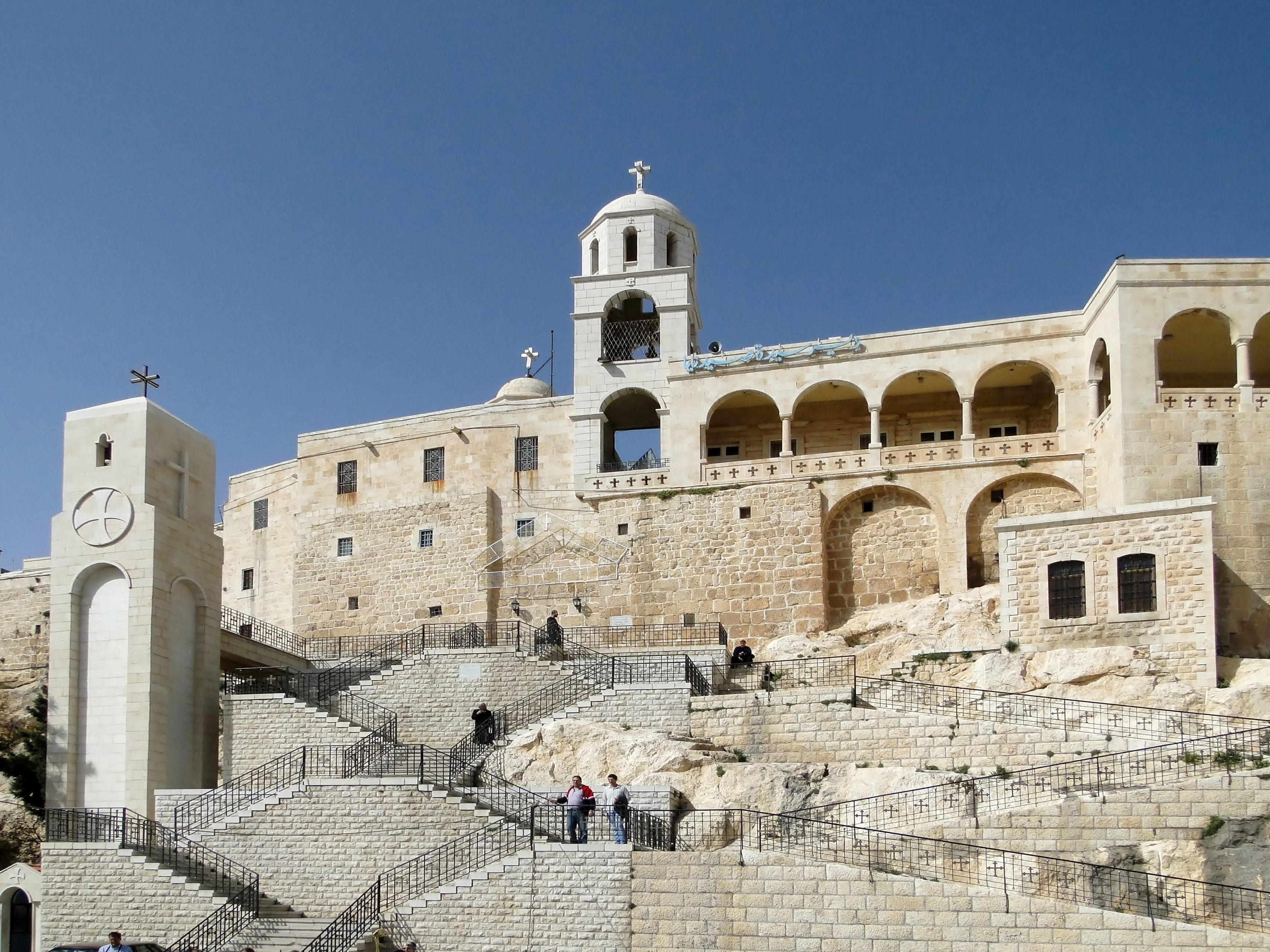
Christianity in Syria
Christians in Syria made up about 10% of the pre-war Syrian population.[1][2] The country's largest Christian denomination is the Greek Orthodox Church of Antioch,[3][4] closely followed by the Maronite Church and the Assyrian Church of the East;[4] the cities of Damascus and Aleppo are believed to have the largest number of Christians in Syria. There is a small minority of Protestants in the country.[5]
Overview[edit]
In the late Ottoman rule, a large percentage of Syrian Christians emigrated from Syria, especially after the bloody chain of events that targeted Christians in particular in 1840, the 1860 massacre, and the Assyrian genocide. According to historian Philip Hitti, approximately 90,000 Syrians arrived in the United States between 1899 and 1919 (more than 90% of them Christians).[6] The Syrians referred include historical Syria or the Levant encompassing Syria, Lebanon, Jordan and Palestine. Syrian Christians tend to be relatively wealthy and highly educated.[7]
According to the Catholic charity group Aid to the Church (ACN), number of Christians residing in Syria is estimated to have reduced from 2.1 million (10% of population) in 2011 to around 300,000 (less than 2%) in 2022. The decrease is due to large-scale emigration of Christians to Europe triggered by deteriorating living conditions caused by the civil war.[8] US State Department estimates that Syrian Christians comprise 2.5-3% of the total population inside Syria, as of 2022.[9]
the autocephalous ;
Eastern Orthodox churches
and the independent (i.e., the "Nestorian" Church). Followers of the Assyrian Church of the East are almost all Eastern Aramaic speaking ethnic Assyrians/Syriacs whose origins lie in Mesopotamia, as are some Oriental Orthodox and Catholic Christians. Even though each group forms a separate community, Christians nevertheless cooperate increasingly. Roman Rite, Western Latin Church Catholicism and Protestantism were introduced by missionaries but only a small number of Syrians are members of Western rites.
Assyrian Church of the East
– has the largest Christian population of various denominations (mostly ethnic Armenians and Assyrian/Syriac. Also members of Greek Orthodox Church of Antioch and Melkite Catholic Church)
Aleppo
– contains sizable Christian communities of all Christian denominations represented in the country
Damascus
– has the second largest Christian population (mostly members of Greek Orthodox Church of Antioch)
Homs
or Valley of Christians – has a sizable Christian population in the area (mostly members of Greek Orthodox Church of Antioch)
Wadi al-Nasara
– has a sizable Christian population (mostly members of Greek Orthodox Church of Antioch and Melkite Catholic Church)
Maaloula
– has a large ethnic Assyrian/Syriac population (mostly members of Syriac Orthodox Church)
Al-Hasakah
– 35 villages has a large ethnic Assyrian/Syriac population (mostly members of Assyrian Church of the East)
Khabur River
– has a number of Christian towns/cities/villages (Maharda, Al-Suqaylabiyah, Kafr Buhum, Toumin, Ayyo, Al-Biyah, Ain Halaqim, Barshin, Al-Bayda, Hazzour). Christians also live in the city of Hama
Hama Governorate
– has five Christian villages (Al-Quniyah, Al-Yacoubiyah, Judayda, Hallouz and Al-Ghassaniyah). Christians also live in the cities of Idlib and Jisser al-Shughour.[32]
Idlib Governorate
Christians spread throughout Syria and have sizable populations in some cities/areas; important cities/areas are:
member of Syrian opposition.
George Sabra
chess player
Philip Stamma
Minister of Foregin affairs (1945)
Mikhail Ilyan
philosopher and politician
Michel Aflaq
Minister of Defence (2011-2012)
Dawoud Rajiha
Minister of Oil and Mineral Reserves (2001-2006)
Ibrahim Haddad
politician
Sami al-Jundi
Permanent Representative of Syria to the United Nations (1996-2003)
Mikhail Wehbe
Speaker of the People's Council of Syria since 2017
Hammouda Sabbagh
Syriac Orthodox Archbishop and kidnapping victim
Yohanna Ibrahim
Greek Orthodox Archbishop and kidnapping victim
Paul (Yazigi) of Aleppo
chronicler
Paul of Aleppo
actor
Maxim Khalil
actor
Bassem Yakhour
musician
George Tutunjian
singer
Lena Chamamyan
singer
Faia Younan
composer
Nouri Iskandar
Arab Christians
Anglican Diocese of Jerusalem
Christianity and Islam
National Evangelical Synod of Syria and Lebanon
Christianity in the Middle East
Religion in the Middle East
Genocide of Christians by the Islamic State
Sectarianism and minorities in the Syrian Civil War
1860 civil conflict in Mount Lebanon and Damascus
Massacre of Aleppo (1850)
(1915-1918)